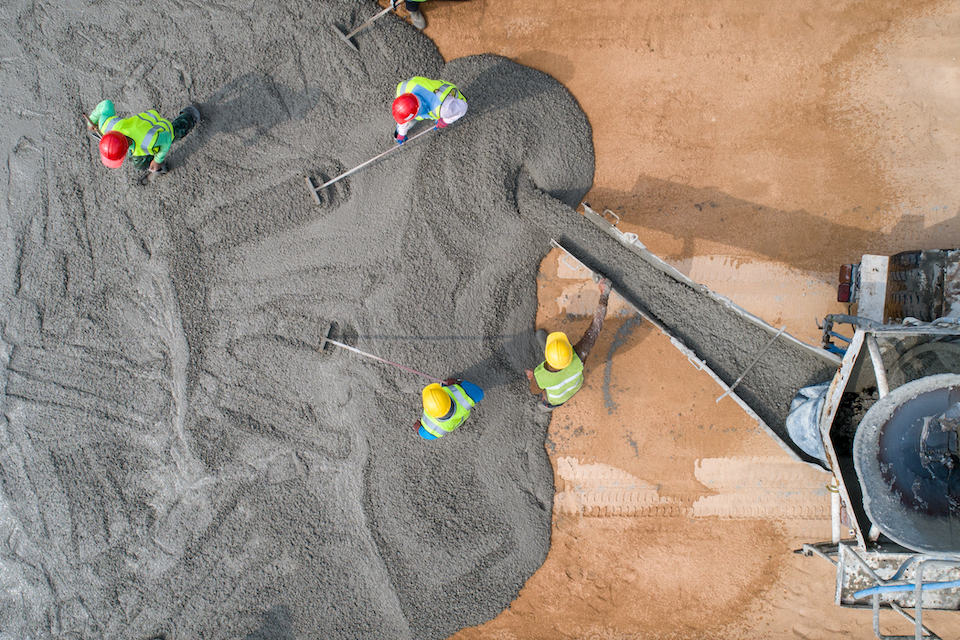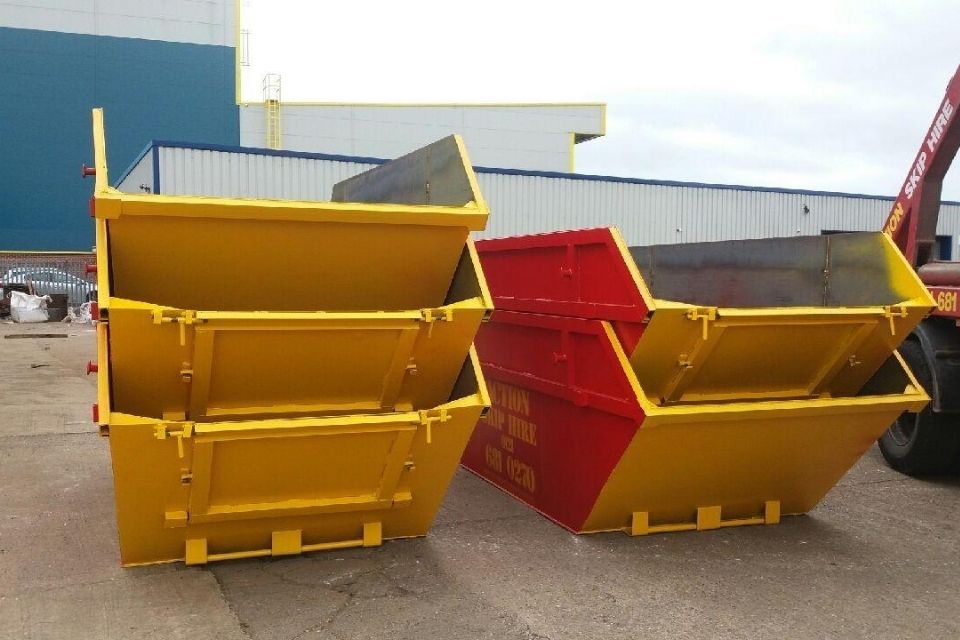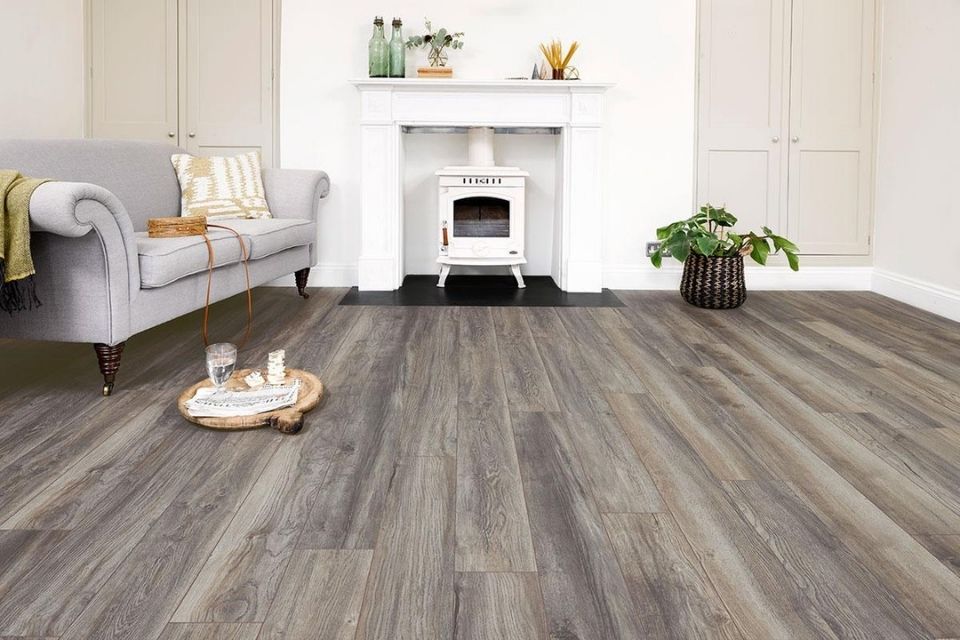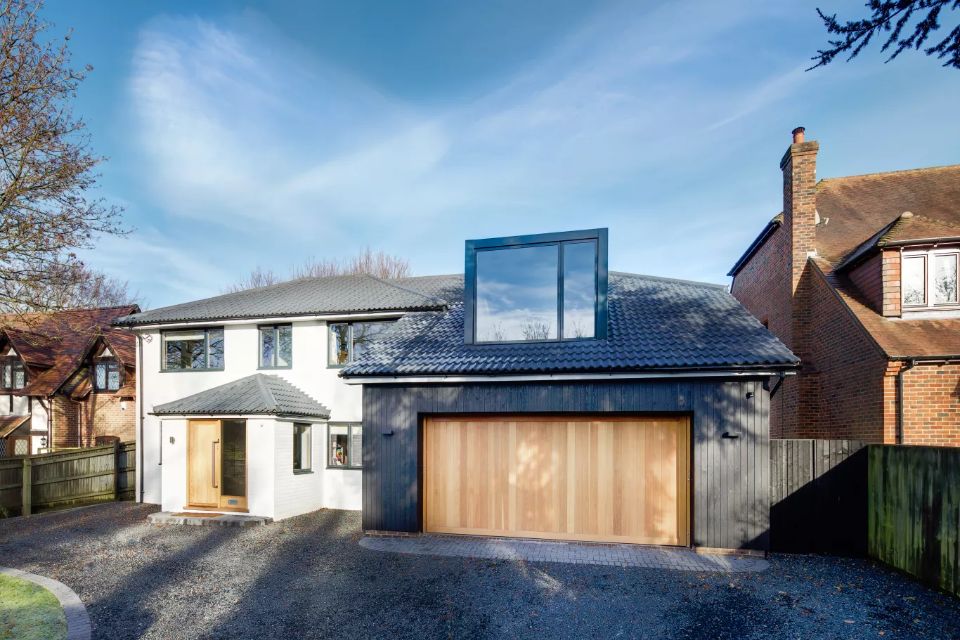How Much Does Concrete Pouring Cost in 2025?
Whether you're looking for concrete for foundations or other construction needs, we've got all the information you need right here.
Although concrete pouring isn't the most attractive topic, it is an important aspect of many homes repair projects.
Whether you're laying new flooring, planning a new driveway, or need foundations for a new home, we can help. Pouring concrete is the most effective method for achieving the greatest results.
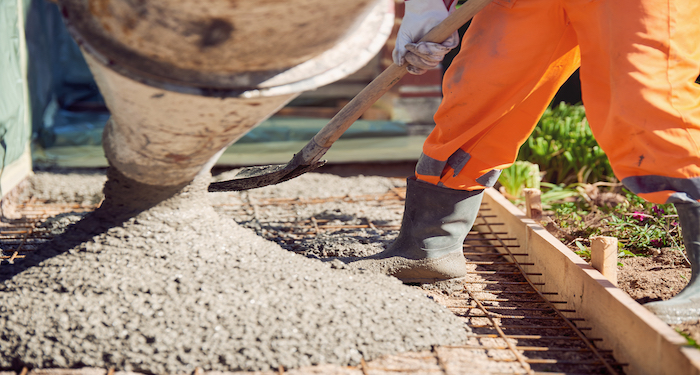
Here are some things for you to consider...
It's difficult to estimate the cost of concrete delivery because there are so many variables to consider. The quality, additives, and reinforcement, as well as the preparation and finishing, all play a role.
Other elements to consider are the distance between the site and the facility, the length of the delivery, whether a concrete pump is required, and how far concrete must be pumped.
Rather than cost per square foot, the cost of laying concrete is determined per cubic metre (m³). Because you typically need to fill a volume rather than merely an area, discussing in terms of square footage (or even weight) is difficult to communicate.
Let's get down to the costs
While ready-mix concrete is available from £85, concrete pouring prices are generally between £99-£105 per m³ for grades C8, C10, and C15. For grades C20/C25, expect to pay between £105-£110 per m³.
The typical price per m³ for grades C30/C35 is between £110 - £115. Alternatively, if you desire grades C40/C45, concrete pouring costs around £115 - £120 per m³.
Because ready-mixed concrete is sold by volume, knowing the space you're filling is critical. The cost of concrete is determined by several factors, including your location and the sort of concrete you've ordered.
However, you should expect to pay between £85 - £120 per cubic metre in general. If the cost is greater, you should question it with your provider and compare it to other pricing to ensure you're still getting a good deal.
The cost of pouring a concrete driveway varies greatly, ranging from £600 - £8,000 on average. The size of the driveway and the quality of the concrete used are two of the most critical aspects that will determine the total amount you pay.
The cost of concrete pouring rises with the size of the driveway and the quality of the concrete.
There are other factors to consider too...
Other factors that influence the cost of pouring concrete include the volume of concrete required, the task's accessibility (i.e., how difficult it is to get to the floor), and if the operation will take longer to finish.
Because tradesmen frequently charge by the hour, the complexity of the project will have an impact on the price. If any preparation work is required, you should limit the amount of time a labourer spends in your home to avoid increasing the final cost.
Where you live will also affect the overall cost because of the higher cost of living, higher population, and higher demand for services. Services in London are always costlier than in many other places of England.
Concrete Prices per m3 in 2025
The table below shows the different pouring concrete prices:
| Pouring Concrete | Cost |
|---|---|
| C8/C10/C15 | £99 - £105 |
| C20/C25 | £105 - £110 |
| C30/C35 | £110 - £115 |
| C40/C45 | £115 - £120 |
| Pouring concrete driveway | £600 - £8,000 |
| Ready-mix concrete | £85 - £120 per m³ |
- How Much Does Concrete Pouring Cost in 2025?
- What are the Supply Costs of a Concrete Base?
- What are the Additional Costs of Concrete Pouring?
- Tradesmen Costs for Pouring Concrete
- Types of Concrete Pouring Jobs
- How Long Does It Take to Pour Concrete?
- Benefits of Concrete Pouring
- How Much Does It Cost to Remove Concrete?
- FAQs
What are the Supply Costs of a Concrete Base?
If you wish to save yourself some money and create DIY a concrete base, below we have summarised everything you need to know.
Before we go onto the tools required, firstly calculate how much concrete you'll need in cubic metres and remember it's always best to have too much than not enough.
The below calculation is based on creating a 100mm deep base that measure 3m x 2m:
- Use the formula: length × width × depth (for example, 0.10m × 3m × 2m = 0.60 cubic metres).
- Round up any small decimal amounts if required (for example 0.59 cubic metres would become 0.60).
- Add a 10% contingency to your total volume (ie: round up 0.60 to 0.70 cubic metres).
Once you know how much concrete is required, you'll need to purchase sand (which on average costs £43 - £88 per bag) and cement at around £6 - £15 per bag.
Alternatively, ready mixed concrete is available, costing somewhere between £6 to £14 per bag - the end cost will, of course, depend on how much you need for the job.
In addition to the sand and cement (or ready-mixed option) required to install a concrete base, the following table provides a list of the tools you will need to carry out the job successfully:
| Supply | Cost |
|---|---|
| String | £1 – 4 |
| Tape measure | £2 - £10 |
| Set square | £3 - £37 |
| Spirit level | £3 - £40 |
| Floor bearers | £4 - £30 |
| Pegs | £6 - £20 |
| Spade | £7 - £25 |
| Mixing board | £13 - £20 |
| Rake | £12 - £40 |
| Earth rammer | £20 - £40 |
| Finely broken hammer | £30 - £33 |
| Timber | £14 - £100 |
| Wheelbarrow | £50 - £100 |
| Tamp board | £150 - £300 |
| Cement mixer | £400 - £600 |
What are the Additional Costs of Concrete Pouring?
Concrete prices vary greatly depending on a variety of criteria, including the quality of the concrete product, the delivery site's location, the time required to finish the pour, the required concrete mix design, and the amount of concrete required.
As a result, you should budget for some additional concrete pouring charges. As a result, we've established this section to show you the extra charges that may have an impact on your budget.
Concrete Driveway
During your decision for concrete pouring, you may decide you want a concrete driveway. Concrete driveways are becoming more popular as time goes by as they are aesthetically pleasing, and a new driveway gives your home a new look. But how much does a concrete driveway cost?
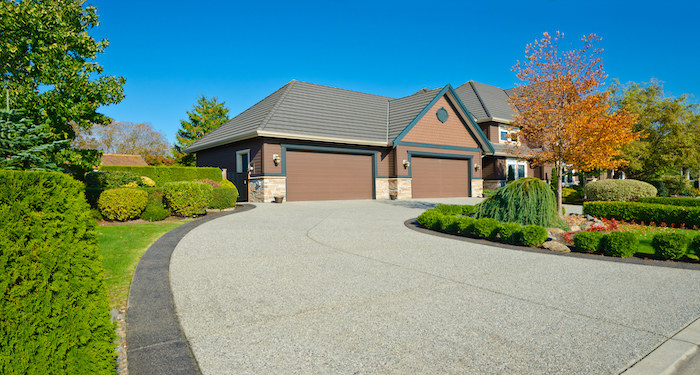
A concrete driveway might cost anything from £348 - £1,968 to install. The cost of constructing a concrete driveway is determined by several criteria’s, including the driveway's size, the type of concrete used, the amount of accessibility, and whether foundation preparations are required.
The size of the driveway is also an important cost consideration since the larger the driveway, the more expensive it will be. So, if you're on a tight budget, a smaller installation might be the way to go.
Please refer to our guide on concrete driveways for further information.
Building a Garden Wall
A garden wall is a great way to give the garden that extra aesthetic it needs. Therefore you might need to know the costs of having a garden wall built in your home.
The thickness of the garden wall (single or double skin), the number of craftsmen hired, the convenience of access, and the location of your home are all pricing variables.
The number of labourers hired, ease of access, the state of the installation area, weather conditions, and the specific brick type chosen if bricks are being used are all time-consuming factors.
Please refer to our guide on the costs of garden walls for further information.
Location
Given that the labour rate for employing builders differs across the country, where you live has a significant cost impact.
For example, labour rates in the southeast, particularly in London, are greater than in the rest of the UK, while the opposite is true in Scotland, Northern Ireland, and the north of England.
Duration of the Job
The longer it will take on-site means the more you will be paying due to the labour costs. If labour is taxed per day, whether the work took two days and three hours or two days and six hours, you would be charged three days of labour.
If a specific price is supplied in advance, the labour cost will not be connected to the time at all.
Amount of Concrete
As you can anticipate, the more concrete you need poured, the more you'll pay because the company or labourers will have to spend more money on materials. So if you want to save yourself some money, then try not to use a big space for your concrete pour.
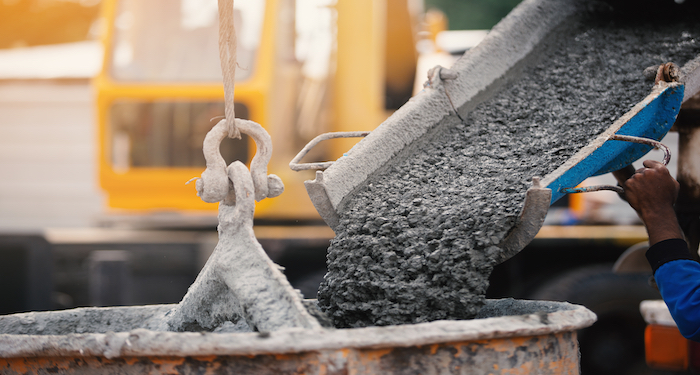
Tradesmen Costs for Pouring Concrete
Pouring concrete is best done by a professional as it can be a hard DIY task. Therefore, when calculating your overall budget, you should always factor in labour costs.
Pouring concrete can cost anywhere between £85 and £120 per m². Although this may change based on the job's complexity, and the time it takes to complete the task. Although generally speaking, labour fees will be somewhere between £220 and £450 per day.
However, there are certain jobs such as laying a concrete driveway, where you could pay based on the surface area. In this instance, tradespeople typically charge an average of around £40 to £50 per square metre.
On the other hand, some driveway installers instead work at an hourly rate, which will vary depending on where in the UK you live. For example, in London you can expect to pay roughly £50 per hour, whereas in Northern England it's often much lower.
Because pouring concrete is labour intensive, it may not always be practical or safe to complete alone. As such for jobs that require more than one person, you are likely to receive a quote that reflects this additional cost.
Types of Concrete Pouring Jobs
There are different types of concrete pouring jobs when it comes to wanting work done to your home, here we will go through the different types of concrete pourings that you should have done to your home.
Concrete Driveway Cost
Installing a concrete driveway (including labour and materials) typically costs between £1,200 and £4,000, depending on size, thickness, and finish. Larger or decorative driveways can cost up to £8,000 or more.
The type of concrete used, the amount of accessibility, and whether foundation preparations are required can also affect the overall price.

A one-car concrete driveway takes one to two days to construct, two to three days to construct a two-car concrete driveway, and up to four days to construct a three-car concrete driveway.
If foundations are required, or you like patterned or pressed concrete, the project could take anywhere from five to one week to complete.
Flat concrete driveways have a straightforward design and are usually constructed of water and a lime-based binder that holds stone aggregate together.
The supply cost (ie not including installation) for the concrete required in this instance can range from £108 for a one-car driveway to £600 for a three-car driveway.
Flat concrete is comprised of the same components as pressed and patterned concrete. It is, however, created by pressing a pattern into the wet concrete. A pressed and patterned concrete driveway might cost anything from £162 - £768 to install.
Pros
- Durable
- Adds value to a home
- Unique designs
Cons
- Expensive option
- Awkward to install
Concrete Floor Cost
For a new polished concrete floor, the typical cost per m² is roughly £120 - £150 per m². That's how long it'll take to pour, finish, and seal the concrete.
Polished concrete floors are sometimes misunderstood as being cold and slick. These flooring can be polished to be non-slip and comfortable to walk on barefoot.
In the colder months, these floors can also accommodate underfloor heating to produce a lovely feeling of warmth.
If you already have a pouring concrete floor and just want it polished, the cost is significantly lower, roughly £50 - £55 per m².
The appearance of your garage can be greatly improved by installing a new garage floor. Polished concrete is a good choice for garages since it is both durable and adaptable. The cost of a polished concrete garage floor ranges between £2,000 - £2,500.
Choosing a polished concrete floor for your bathroom is a great method to completely change the look of the space. Your finished bathroom will have a modern or industrial vibe to it, with a high-end appearance. The cost of a polished concrete bathroom floor is between £300 - £400.
Pros
- Durable
- Can work with underfloor heating
- Multiple design options
Cons
- Expensive
Concrete Shed Base Cost
The average supply cost for laying a concrete shed base is around £40 for a small garden shed.
Once you have your base, this will provide a stable and level foundation ready to build or place your shed. Without one, you are likely to see your shed move or potentially start to sink.
This can also lead to additional issues, such as the wood becoming damaged or warped and the doors or windows becoming misaligned.
Pros
- Provides a suitable foundation for your shed
- Durable, weather resistant and long-lasting
- Suitable for all types of sheds
Cons
- Requires additional groundwork first
- Need to allow sufficient drying time before use
- Permanent feature to your garden
Pouring Concrete Slab Cost
Pouring a concrete slab from ready-mixed concrete typically costs between £85 to £120 per m³, although the cost may be less if you're creating the mix yourself.
Modern constructions use concrete slabs to give a flat, horizontal surface. Floors, ceilings, and roof decks are the most popular applications.
A concrete slab is utilised on top of the foundations in many domestic buildings to give a solid ground floor — this is known as a ground-bearing slab.
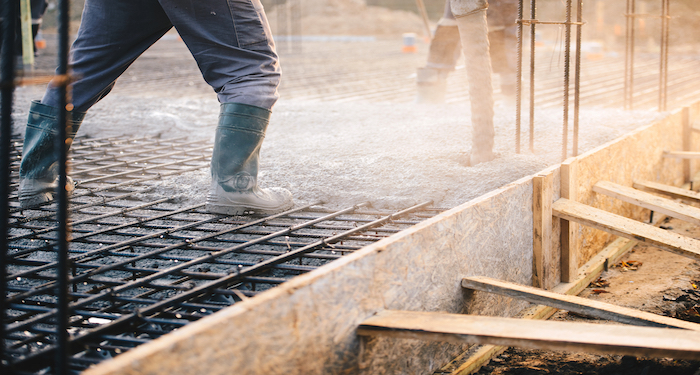
The cost of concrete pouring will vary depending on the quality of the concrete used, the size and complexity of the job, and where you live in the country, just like other types of concrete pouring.
Pros
- Easy to do
- Durable
Cons
- Raises the floor level
- High maintenance
How Long Does It Take to Pour Concrete?
The size of the driveway has a massive impact on the time taken to complete the job. We have therefore compiled the below table to help.
| Size | Duration |
|---|---|
| 5.75 m² | 1 – 2 days |
| 12.25 m² | 2 – 3 days |
| 25 m² | 3 – 4 days |
| 40 m² | 4 – 5 days |
| 60 m² | 5 – 6 days |
| 100 m² | 7 – 8 days |
However, you should also be mindful that you need to allow time for the concrete to fully set. For normal, full-strengh concrete this can take an additional 1 or 2 days, although it will then be a further 25-28 days until it acquires full strength.
One week after the concrete has been applied, you should be able to walk and conduct typical duties on it. However, because the concrete will only be 70 per cent of its fingal strength at this time, avoid using heavy gear on it.
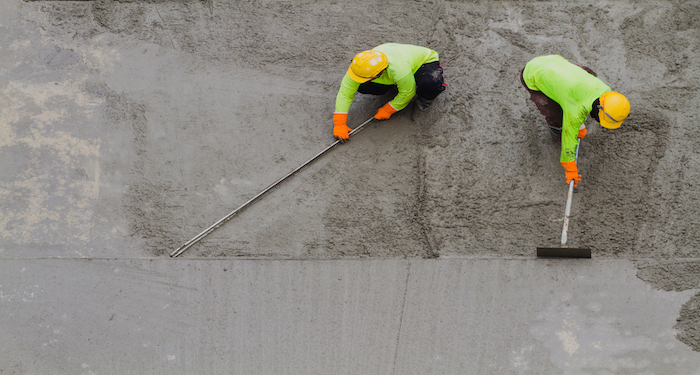
Benefits of Concrete Pouring
If you are unsure of having concrete pouring done in your home, then here we will go through the different benefits you will feel after having the job completed.
Waterproof
Poured concrete is frequently used for operations that historically required the use of blocks, such as walls, floors, and foundations.
One of the advantages of poured concrete is that it lacks joints, making it much easier to construct a waterproof construction.
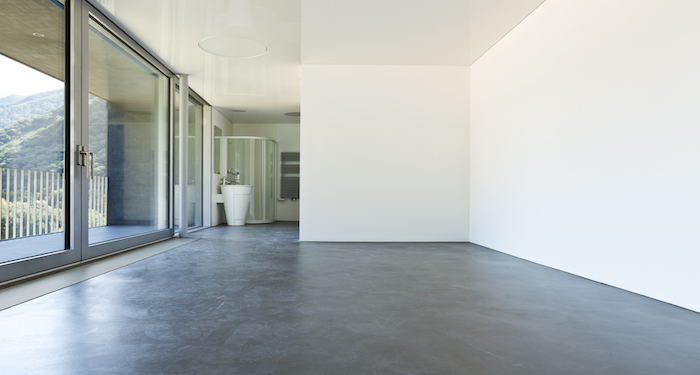
It's also denser than other materials, making water penetration more difficult. As a result, when utilised in buildings, you should observe fewer issues with damp, mildew, and algae growth, particularly in basement areas where water tightness is often a concern.
Adaptability
Poured concrete is extremely flexible, allowing it to be moulded into practically any shape. This implies it's more adaptable than blocks and can be utilised for a variety of foundation designs and concrete constructions.
Because of its adaptability, it's frequently utilised in commercial construction, where plans might be more complex and change at the last minute.
Fast Application
Most concrete-related projects are constrained by time and expense. Because poured concrete is quicker and faster to lay than blocks, it can significantly reduce labour costs and time.
It's compatible with concrete pumps, which allow the mixture to be poured even faster and more efficiently, resulting in a more cost-effective operation. Pumps can also help to lessen the mess and waste that comes with poured concrete.
Strong
Concrete that has been poured is extremely strong, and the higher the concrete grade, the more stress and compression it can sustain.
This implies it's even employed for underground buildings like foundations and basements. Because of its strength, poured concrete is extremely long-lasting and requires little maintenance.
Fire Resistant
Poured concrete is extremely fire resistant, retaining structural integrity even when exposed to extreme heat. This is due in part to the solidity of poured concrete walls, which provide better protection throughout a structure.
How Much Does It Cost to Remove Concrete?
Suppose you want to give your home a new feeling it then you may decide to remove the concrete in your home. Therefore, you will want to know how much it will cost you to remove concrete which is why we have created this section to show you the costs of concrete removal.
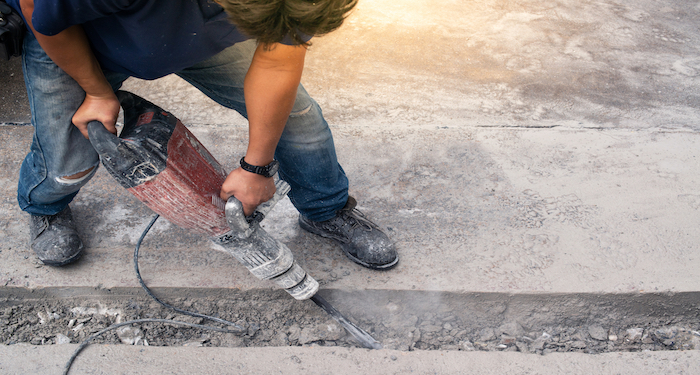
Concrete removal costs roughly £50 per square metre with VAT on average. Concrete driveways follow the standard rule of £50 per metre square.
The average cost of removing a concrete driveway is between £1,500 - £2,500.
Patios are frequently constructed using concrete slabs that have been mortared together.
To remove a concrete patio, a tradesperson will typically charge roughly £150 per day. If you wish to remove a concrete floor, you'll almost certainly be charged a set amount for the job. The cost of removing a concrete floor is approximately £50 per m².
FAQs
Q: What happens if it rains after pouring concrete?
A: Rain pouring on freshly laid concrete can harm the surface and make a level and floating finish impossible to achieve. Worse, if too much additional water gets into the concrete mix, it might result in overall weak concrete.
Q: When should you seal the concrete after pouring?
A: Allow new concrete to cure thoroughly before using it (at least 28 days or as recommended).
Most sealants must be applied in dry conditions. When applied to damp concrete, it may become hazy or lose adherence during sealer application and for at least 24 hours afterwards.
Q: What happens if you seal concrete too soon?
A: It is also for this reason that a concrete sealer cannot usually be applied until the thirty-day curing period has passed.
You risk destroying and hurting the concrete's potential future strength if you apply a concrete sealer on a slab that has not fully cured.
Q: Should you DIY concrete pouring?
A: Whether you're constructing concrete countertops or a back patio, it may be less expensive to do it yourself than to hire someone.
The amount of concrete you'll need and the amount of time you must devote to your concrete project will determine how much money you'll save. However, it can save you a lot of money or go wrong.
Q: What’s the difference between ready-made and volumetric concrete?
A: Ready-mix concrete is made at the factory, placed into a truck, and transported to your construction site. This variety is less expensive, but you'll have to order the exact amount you'll need ahead of time.
At your construction site, volumetric concrete is mixed in specialised trucks. There are several advantages to this method, including the fact that you only pay for what you need and that it is freshly cooked on-site, giving you more time to work with it.
Unfortunately, volumetric concrete costs more per cubic metre than ready-mix concrete. You do, however, have a lot of options.

